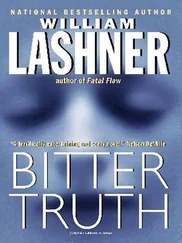He saw me as well, blinking to clear his vision as he peered in my direction. The morphine was taking effect. He grinned and did a very poor imitation of that same laugh.
He must have noticed the surprise on my face.
“Kookaburra,” he said. “It’s a bird, love.” And then he closed his eyes and lay back.
I took his hand. “I found her,” I said, leaning down to whisper in his ear. “Thank you. You made it possible.”
I couldn’t be sure whether he’d heard me or not. And my chest wound was in need of urgent care. I walked away from the Sergeant and found the tired, overworked doctor waiting for me.
My chest wound survived and was sent down the line for further treatment. I had very little time to think about anything after that as the level of severe wounds rose. It was another ten hours before I was relieved, and I walked wearily back to my quarters, falling into my cot to sleep heavily.
The next morning I was back at work, and the next. And finally, as the flow of wounded slowed with the desultory sounds of firing from the Front, I could take a deep breath and massage my aching shoulders and the small of my back.
I found one of the ambulance drivers who had taken patients back to the main dressing station. He smiled, his eyes bloodshot and strained, as weary as I was.
I asked if my chest wound and several other very difficult cases had survived, and he told me they had reached the next station alive. That spoke well for the immediate care they had received here. “And the Aussie Sergeant?”
“He wasn’t doing well. I’m sorry, Sister, we did our best. But his breathing was ragged when we got him there.”
I thanked him and let him go to a well-deserved rest.
A day later when I ran into an Australian officer in consultation with an English Major as they stood in the entrance of a tent out of the fierce wind that had begun to blow across the flat, decimated landscape of war, I walked up and begged their pardon for the interruption. Then I turned to the Australian officer and asked, “Sir, what is a kookaburra?”
He glanced at the English Major and smiled. “It’s a very large kingfisher. Very striking bird. When half a dozen of them gather in the trees, you can’t hear yourself think. Its call is something you won’t forget, once you’ve heard it.” The smile faded. “You haven’t treated Sergeant Larimore, have you? It’s his signature, so to speak.”
“Yes, sir, I have. He was brought in a few days ago. I was just speaking to the ambulance driver. He said the Sergeant wasn’t doing well when he arrived at the main dressing station.”
“A pity, that. He’s a good man, one of the best.”
I thanked him and walked on.
There was no time to return to Rouen. The next fortnight was busy, and besides, I’d just been given leave. I couldn’t ask for more so soon.
I found three soldiers from my father’s old regiment and put out the word that I was concerned about an Australian Sergeant named Larimore who had been under my care.
Word came back that he’d been taken to Rouen and sent on to Boulogne for transport to England. And then someone else reported that he had died before he reached Rouen.
I could feel the tears in the back of my eyes. Such a waste, I thought.
I was still feeling low from the shock of that, when I received a visit from Matron. She came in with a frown between her gray eyes, and I did a hasty review of my sins, for I thought she was angry about something.
Instead she asked, almost with distaste, “Sister Crawford, have you been involved in a murder inquiry in Sussex?”
“Yes. Before Christmas. A guest in the house where I was staying was found dead.”
“I see. It appears that your presence is required at an inquest being held next week. We’ve been asked to approve leave for you to give testimony.”
“I was with Mrs. Ellis when we were searching for the missing man, and we were the ones who found his body.”
“Yes, I see. Then I shall approve this request for leave. Five days should be sufficient? We’re really short staffed, and you are one of our most experienced nurses.”
“I don’t know what is sufficient, Matron. I’ve had no news since the first inquest was adjourned while the police proceeded with their inquiries.”
“Very well. I shall ask for five days, with the understanding that if more time is required, the police can give you a chit explaining why it was necessary to remain longer than that.”
“Thank you, Matron.”
And she was gone. Official word of my leave came down the next day, and I asked if I could be sent home via Rouen, as I’d like to look in on patients there.
To my surprise, the request was granted. And then I learned why when I was given orders to accompany a train of severely wounded men to Rouen for further care.
It proved to be an arduous journey, and I lost one patient before we pulled into the station in Rouen. Stretcher bearers and orderlies and ambulance drivers helped us take the wounded out of the train and ferry them to the race course.
There I found a very orderly receiving station, although what had been a five-hundred-bed hospital had soon expanded to thirteen hundred or more. The American nurses were quiet and efficient, and soon my charges were dealt with.
I had just signed the paperwork when I heard off in the distance that wild laughter. Cracked and weak, but undeniably Sergeant Larimore’s kookaburra.
I said, “I know that sound.”
An American nurse rolled her eyes. “I declare, he’s the most impossible man.” She wore pince-nez glasses and had a soft voice that reminded me a little of Devon.
“It’s a bird. Like a kingfisher. An Australian bird.”
She considered me, doubt clear in her face. “I live by a river. I’ve seen kingfishers most of my life. They don’t make any sounds like that.”
“No. May I see him? I’m so glad to know the Sergeant is still alive.”
She weighed the possibility that I had a romantic interest in an attractive man. I could see the thought passing through her mind as she debated whether to allow a visit.
“I was the sister who took the shrapnel out of his shoulder the first time he was wounded,” I added helpfully.
“Ah. Sister Crawford. He’s done nothing but compare everything we do to your skill and dedication. I’m delighted to meet this paragon at long last.”
I could feel the warm blood rush into my face. “I’m so sorry! I expect he was being cheeky.”
“Indeed.” She looked in the direction the sound had come from. “I must tell you, he’s not out of the woods yet. He had such a fever when he was brought to us-that was almost three weeks ago-and he was out of his mind the first few days. You will find him much changed. There’s still the possibility of pneumonia. But he insists on getting out of bed and walking about. He even disappeared into Rouen two days ago. When he was brought back, he claimed he’d been delirious and didn’t know what he was going. It’s difficult to keep him quiet. Perhaps you can persuade him to be more sensible.”
She pointed to a tent in the third row, the first one in the tidy white line. The contrast with the forward dressing station where I’d been working was very evident. And I even caught a glimpse of the X-ray machine that had saved so many lives.
I went down to the race course and located the tent in which Sergeant Larimore was once more making his raucous call.
Walking through the flap, I said in my best imitation of Matron’s voice, “That will do, young man. There are other wounded in this Base Hospital, you know. Show a little consideration for them.”
He turned his head to argue with me, recognized me, and grinned. “So they finally brought you here,” he said. “I was on them about you often enough.”
Читать дальше












